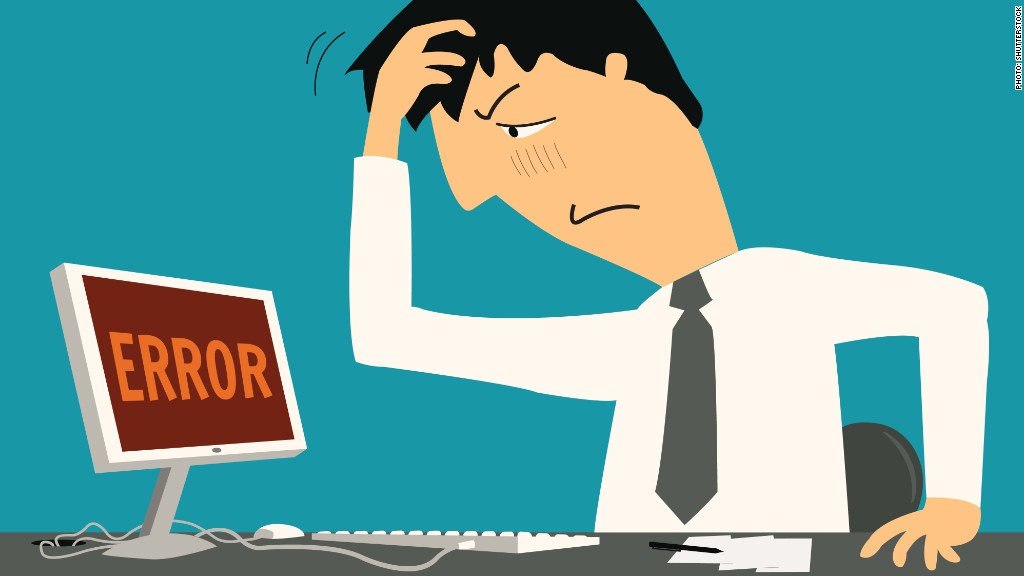
Imagine you're buying your first stock. You do all the research, painstakingly build an Excel worksheet to make calculations, and think about it really hard.
The day you hit "buy," you're kind of giddy with excitement, and you check the stock price every day thereafter.
And what do you do if the stock goes down?
If you're like most people, you'll likely hold onto it. Maybe it's just a temporary setback, you might think, or perhaps the market is in disarray. Maybe it's just undervalued! You even consider buying more.
And maybe the days turn to weeks... turn to months. And it's still sitting there.
Related: Warren Buffett Tells You How to Turn $40 Into $10 Million
We hate to admit losses: The phenomenon of hanging onto our "losers" is known as the "disposition effect." Basically, we can't stand to realize our losses -- it's just too painful. So, we leave them there and ignore them, focusing instead on our winners (which we're relatively more likely to sell to lock in our gains).
What drives this behavior? Pride? Ego? An unwillingness to face the truth?
Cognitive dissonance: A recent study took a novel approach to the question by asking whether or not investors behave the same way with mutual funds.
As it happens, while investors are very reluctant to part with losing stocks, the same does not hold true for losing mutual funds. In fact, the opposite occurs: Investors are more likely to sell a badly performing mutual fund.
The root of the difference is cognitive dissonance, which just means we can't stand it when the evidence rubs up the wrong way against our worldview. In the case of owning a stock, we have a hard time facing the fact that we made a bad investment decision, especially when we'd like to think of ourselves as the kind of person who makes good investment decisions.
Related: 7 Top Stocks to Buy for 2015
And so, instead of trying to square those two opposing ideas, we ignore the stock and pretend it didn't happen.
It works differently for mutual funds, because in that case, the manager is at fault for poor performance. Sure, a certain someone bought the mutual fund, but it was the manager's responsibility to manage it well. If he or she didn't, well, I'll just have to take my money elsewhere.
The effect depends on the level of individual decision-making. In other words, the more you delegate the investment decisions to someone else (like a portfolio manager), the less likely you are to hang onto your losers.
We're blind to our mistakes: The lesson here is that our minds (and egos) can very much get in the way of our decision-making.
Unfortunately, remembering not to take your bad decisions personally can be very hard, but it's necessary. It's one thing to hold onto shares of a company that still has promise, despite a rough initial go in your portfolio, but it's quite another to keep a stock that reflects an investment thesis that has been proven wrong.
In the latter case, you sit with assets in that one wrong stock pick from 2003 instead of moving on and cutting your losses -- and deploying that money to buy companies with more upside promise.
One way to avoid this mistake is to think of yourself not as yourself, but as a manager. Try to get some distance from the temptation to avoid a negative self-image. You can even try this line: "My manager picked wrong, this one's a dud." Eccentric, yes, but it could work.
Related: 3 Surprising Habits of Smart Investors
Another way to get some distance is to find someone else to blame. Did someone recommend the stock? Give you the analytical model? Do you have a healthy sense of superstition about why things could have gone south? It might be juvenile, but it might also give you the space you need to accept the bad decision and move on.
Of course, you could also learn to own up to those investing mistakes. Probably the best strategy, but also, unfortunately, the hardest one to master.
In the meantime, I'll stick with channeling Remus from "Boardwalk Empire" and thinking of myself in the third person.
Anna B. Wroblewska writes for The Motley Fool from South Africa.


